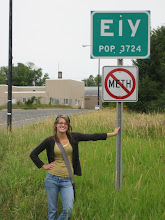Today was our first day in the field! I traveled with my partner in crime, Dan, and our translator John. John has been working for SFS for 7 years. Before joining SFS, he worked for an NGO in Kenya that raised money to send Maasai girls to school and to promote their attendance in secondary schools. Traditionally Massai girls are not sent to school, but the community is trying to change that in order to empower their women. I was able to see the impact of the lack of education of women today as we were collecting data.
The questionnaire we developed has 6 sections: demographics, water storage and collection, agricultural practices, household sanitation, hand hygiene and food preparation practices, and household illnesses and episodes. We are viewing these topics through a “health lens” with a goal to identify causes of health problems, low cost, sustainable interventions, and any barriers to interventions. Many of our questions inquire about sensitive issues like HIV, opportunistic infections associated with HIV (tuberculosis), sexually transmitted infections, toileting practices, etc. We had to throw out a lot of these questions in our initial drafts of the questionnaire and be careful with how we word certain questions. Some of the information given to us contradicted what we saw as we conducted the questionnaire. Many of the children we saw had runny noses and were coughing violently, but when the mother was asked if her family members had any of these symptoms in the last month, she responded that they hadn’t. Also, some of our repetitive questions had contradicting answers so when it comes time to analyze our data, it’s going to be a difficult task. Another problem is the communication barrier. One of our questions, “How are people who have HIV/AIDS viewed by the community?” is translating as “How are people who have HIV/AIDS seen by the community?” and the response we are getting is “The mobile clinic sees them.” When we asked how HIV was transmitted, many of the women didn’t know. When we asked why they didn’t have a latrine, many of the women said that their husband would not allow one, even though they would like to have one. Another question asked “Do you think that diseases can spread among people who practice polygamy?” and only one woman thought that to be true. Many of the women don’t believe that they can get HIV from their husband even though he has multiple sexual partners. What is the solution here? You can’t expect the Maasai to stop practicing polygamy. Our goal is to preserve Maasai culture while educating people about how they can protect themselves, which is why programs like the one John was a part of are so important to developing nations.
My favorite part of the questionnaire is asking the women if they would like to come to our camp on August 9th when we present our research and suggestions for interventions to key stakeholders and community members. Most of the women said they would like to come and we took their name so we could send a car for them. It was great to see these women wanting to learn about what is going on in their community and what needs to be going on. My heart will be so happy when that day finally comes!
Subscribe to:
Post Comments (Atom)


It sure is a different world than where you came from.
ReplyDeleteYour personal trustworthiness adds alot for helping women be willing to come and learn, Dana. Keep the faith!
ReplyDeleteIt is a start that maybe your research will empower the women and help them in the future.
ReplyDelete